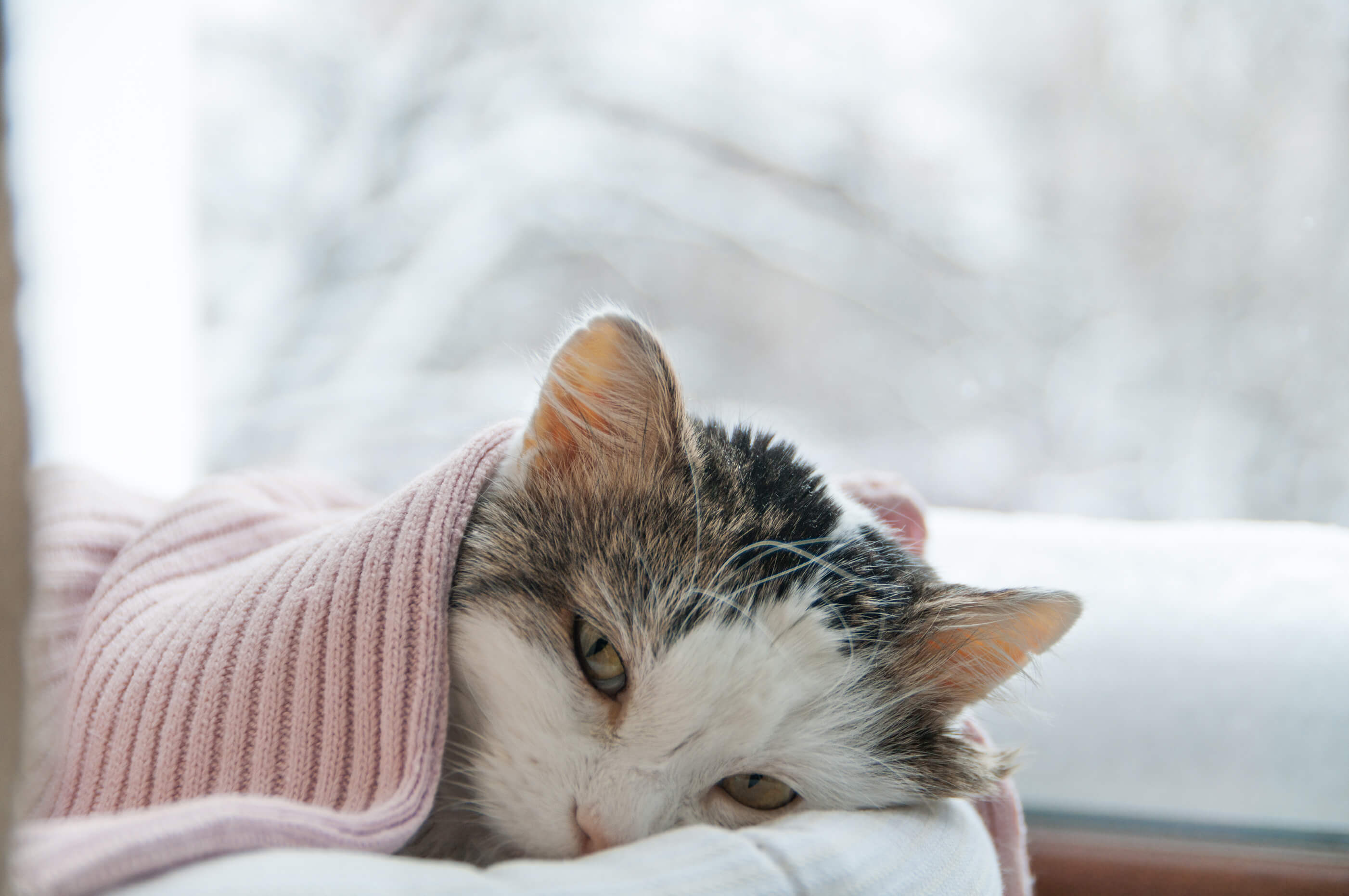
4 Signs of End-Stage Kidney Failure in Cats
Old age brings with it a greater chance of developing health problems. One of the most common diseases among senior cats is chronic kidney disease. Unfortunately, kidney disease does not have a cure, and your cat may ultimately face end-stage kidney failure.
Every cat owner should become familiar with the signs of kidney failure to help their old kitty live as long and comfortably as they possibly can.
The stages of kidney disease
It’s important for cat owners to know the distinction between chronic kidney disease and end-stage kidney failure. With treatment, cats with chronic kidney disease can live happily and healthily during the disease’s first three stages. During this time, you might not even notice that anything is wrong. Most cats show few symptoms of chronic kidney disease in the early stages, which is why owners often don’t detect the condition until significant damage has been done.
If left untreated or if it progresses significantly, chronic kidney disease will lead to stage four, or end-stage kidney failure, which is fatal. Cats experiencing end-stage kidney failure are most likely to display severe symptoms. Among the most common symptoms are loss of appetite and recurring nausea. Once kidney disease advances to stage four, the disease has caused irreversible damage to your kitty’s health, and the end may be near.
Signs to watch out for
While cats with chronic kidney disease can live for years while undergoing treatment, there may come a point where their kidneys have become too damaged to keep them stable. When this happens, you might observe a few symptoms that are different from the minor ones your cat was displaying before.
- Loss of appetite: The first sign cat owners usually notice is a complete loss of appetite. Cats with end-stage kidney failure often lose interest in eating any food you give them—even treats and their favorite wet food. They completely avoid their food bowls and won’t drink from the water dish. Cats who don’t get enough fluids from wet food and fresh water will become severely dehydrated, causing skin tenting and infrequent urination.
- Weight loss: A loss of appetite is closely followed by severe weight loss and muscle wasting. Cats with end-stage kidney failure lose weight despite their lack of exercise. Unlike the other possible symptoms, weight loss usually develops over a long period of time and might go unnoticed at first. However, by the final stage of kidney disease, your cat may appear extremely thin and unhealthy.
- Lethargy: Another key indicator of end-stage kidney failure is a sudden drop in energy. While it’s true some cats prefer to lounge on the sofa all day, cats who are very sick will experience prolonged bouts of lethargy. Toxin buildup in the blood can cause severe depression in kitties, and anemia may deplete your kitty of energy. Your cat may also begin to hide away more, instead of spending time near you. Pay close attention to your senior cat and monitor any changes in their behavior and energy levels.
- Bone fractures: Bones are most likely to fracture in the final stages of chronic kidney disease. By this point, the kidneys are operating at a fraction of their capacity, allowing toxins to remain in the blood and damage your cat’s bodily systems. To make matters worse, your cat is more likely to become calcium and vitamin D deficient due to their lack of appetite. This can weaken the bones and make simple falls much more dangerous.
How to improve your sick cat’s quality of life
Unfortunately, there’s no cure for end-stage kidney failure. The disease is a sign that your senior cat is reaching the end of their life. Many cat owners decide euthanasia is the best course of action once they see their kitty is in pain and has lost their usual quality of life. However, this isn’t your only option. Vets can provide several forms of treatment so your feline friend can enjoy life until they pass naturally.
Owners should first make sure their senior kitties are getting enough to eat. Your vet might recommend a special type of cat food to improve kidney function. The only problem is, you have to find some way to ensure your cat eats it. If they reject the special kidney food, your vet may instruct you to feed the cat whatever food is to their liking, just so they get enough nutrients.
Palliative care, including pain medication, hydration support and lifestyle adjustments to make your cat more comfortable, may also be an option.
Sadly, end-stage kidney failure is a sign your cat doesn’t have much time left. The faster you notice symptoms of kidney disease, the more quality time you’ll get to spend with your senior cat. A vet will evaluate your cat’s condition and come up with a treatment plan that allows you two to enjoy the time you have left together.



